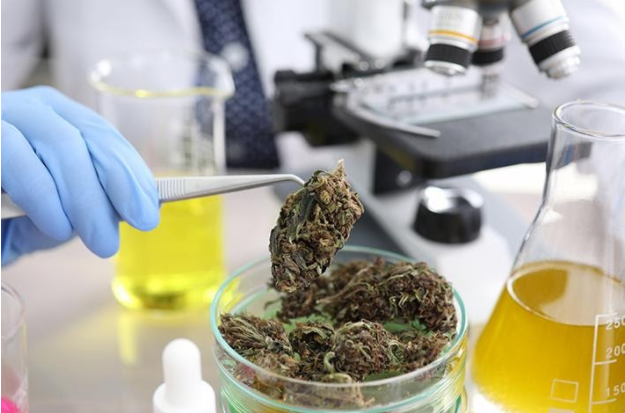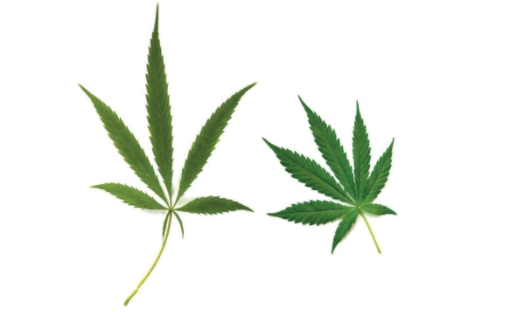|
A proposed ASTM International standard will provide best practice information and requirements for administering certification programs within the cannabis and hemp industry. ASTM’s cannabis committee (D37) is developing the proposed standard.
“The proposed standard provides a foundation for the recognition or accreditation of a specific entity to issue certificates to individuals after successful completion of a certificate program,” says ASTM International member Cary Black, principal consultant and CEO of CK Black Group Inc. “It addresses best practices and quality management principles pertaining to the certification of individuals and the implementation of education or training programs.” This proposed standard (WK73703) will be a resource for organizations involved in the training and certification of individuals within the cannabis or hemp industry. According to Black, the proposed standard would provide a standardized approach to administering certification programs and assisting certification organizations to aspire for excellence and lend credibility to their training and certification products.
0 Comments
A proposed ASTM International standard will provide structure, suggestions, basic requirements, and background education for developing an information security program specific to cannabis businesses. ASTM’s committee on cannabis (D37) is developing the proposed standard.
The proposed standard (WK69969) will assist cannabis business entities with implementing an information security program to protect information assets from unauthorized use and attacks using a team approach. “The practice includes steps to establish a workgroup, conduct risk assessment and analysis, set priorities, and select and design controls to prevent and detect intrusions,” says ASTM member Patricia Haley, PWG principal consultant. “In addition, it will handle response and recovery using a framework of physical, technological, and human factor controls along a continuum of prevention, detection, response and recovery.” ASTM welcomes participation in the development of its standards. Become a member of ASTM. A proposed ASTM International standard will establish sound sampling strategies for post-harvest flowers, leaves, and other cannabis or hemp biomass. ASTM’s cannabis committee (D37) is developing the proposed standard.
The proposed standard (WK64336) will provide protocols to ensure that statistically representative samples relative to the batch are collected, resulting in an adequate representation of associated analytical results. This will help ensure consumers have safe and consistent products. “Traceability from the original batch to the consumer is essential,” says ASTM International member Cary Black, principal consultant, and CEO of CK Black Group Inc. “This also heightens the quality of the data, enabling cultivators to have greater confidence in their processes and better detect anomalies or deficiencies that may affect final product quality.” The proposed standard will be useful to cultivators of raw cannabis or hemp plants. “Cultivators of raw cannabis/hemp plants ultimately require analytical test results designed to define the phytochemistry or level of impurities within a given post-harvest lot,” says Black. “The analytical results provide data indicating the conformity of the results within the guiding pharmacopeia or regulatory conditions of the final product.” Proposed ASTM International standards will provide standardized experiential, educational, role descriptors, and expected body of knowledge for vocations in the cannabis industry. ASTM’s committee on cannabis (D37) is developing the proposed standards.
The proposed standards include certification requirements for:
“These standards will become references in the development of standardized curriculum allowing individuals to qualify through certification for the many emerging roles in the industry,” says ASTM International member Cary Black, principal consultant, and CEO of CK Black Group Inc. “The criteria will be used by course developers and certification granting entities and allow for industrial standardization for the vocations covered.” According to Black, these proposed standards will be useful to companies hiring individuals within the cannabis industry as an aid in creating job descriptions. In addition, the three guides will provide educators with standardized requirements for designing courses and training to support their certification programs. ASTM welcomes participation in the development of its standards. Become a member of ASTM. A proposed ASTM International standard will describe recommended practices for analytical laboratories in the cannabis industry. ASTM’s cannabis committee (D37) is developing the proposed standard (WK63913). ASTM International member Cary Black notes that the chemistry of products containing cannabis is subject to increasing oversight by regulatory and legal entities. Consumer safety is a critical factor because many of these products are consumed by humans or animals. Standardization across the cannabis industry is critical to the success of the industry. “Whether being used for certificates of analyses, quality control, control studies, or research and development applications, it is imperative that the laboratories conducting these analyses are standardized in their operations as much as possible,” says Black, Principal Consultant and CEO of CK Black Group Inc. “As an agricultural crop with chemical constituents that produce a myriad of physiological effects, the variability and consistency of these constituents and others are of paramount importance to protect consumer safety.” According to Black, “a best-practice oriented guide will optimize standard practices, heighten the quality of the data, and preserve confidence in their processes and better detect anomalies or deficiencies that may affect final product quality.” ASTM welcomes participation in the development of its standards. Become a member at www.astm.org/JOIN. Corrective and Preventive Actions (CAPA) in the Cannabis Industry"A well-defined CAPA program defines, resolves, and prevents recurrence of quality issues, but it also has a well-established means of detecting and preventing potential quality issues," says Kathleen May, MP Consulting. Cannabis QualityA new ASTM International standard aims to support quality in the cannabis industry through what is known as the corrective action/preventive action (CAPA) concept. The new standard (D8229) was developed by the organization’s cannabis committee (D37).
According to ASTM International member Kathleen May of MP Consulting LLC, CAPA focuses on preventing quality issues as well as identifying, investigating, and correcting issues that have already occurred. She says that organizations can use CAPA to help comply with regulatory requirements, to reduce work and waste, to avoid lost revenue, to reduce customer complaints, and to help ensure consumer safety. "Regulatory agencies gauge quality and compliance through an organization’s management and resolution of quality issues," says May. "A well-defined CAPA program defines, resolves, and prevents recurrence of quality issues, but it also has a well-established means of detecting and preventing potential quality issues." The new standard aims to help organizations develop internal CAPA processes based on the type of operation they are running. "For example, a laboratory will have to develop an out of specification procedure to address testing failures and aberrant data trends," May says. "And an indoor cultivation facility would develop a procedure on how to address environmental samples that are over the defined acceptance limit." TO GET INVOLVED Robert Morgan tel +1.610.832.9732 rmorgan@astm.org |
Cary BlackMr. Black is an accomplished and results-driven analytical chemist, ASQ certified quality engineer (CQE), QMS Auditor, Preventive Control Qualified Individual (PCQI), and GMP consultant with multiple skill sets. Categories |








 RSS Feed
RSS Feed